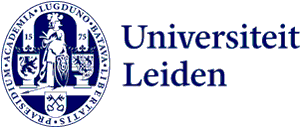Projects 2023-2024
In 2023-2024 seven (teams of) teachers received a Grassroots or Grass shoots grant. Here you can read about their projects.

Grassroots projects
Applicant: Carlijn Bergwerff (Education and Child Studies)
In the course Digital Applications in Mental Healthcare, students lacked a clear insight into eHealth practice. By developing a video assignment in which students create their own module for online psycho-education, students get the opportunity to explore the practice. Linking peer feedback to the assignment allows students to learn from and with each other. The assignment concludes with a presentation, allowing the teacher to assess not only the result, but also the process.In het vak Digital Applications in Mental Healthcare misten de studenten een duidelijke inkijk in de praktijk van eHealth. Door het ontwikkelen van een video-opdracht waarbij studenten zelf een module voor online psycho-educatie maken, krijgen de studenten de mogelijkheid om de praktijk te verkennen. Door peerfeedback te koppelen aan de opdracht kunnen de studenten leren van en met elkaar. De opdracht wordt afgesloten met een presentatie, waarbij de docent niet alleen het resultaat, maar juist het proces kan beoordelen.
Applicants: Dietsje Jolles & Linda van Leijenhorst (Education and Child Studies)
In the course Learning, Cognition, and the Brain, students create a knowledge clip for a general audience. However, the quality of the clips can be quite variable, both in terms of content and execution. To take this to the next level, an online collaboration platform will be used that uses a whiteboard for brainstorming, organising and visualising information.
Structure will be provided by breaking up the assignment into small intermediate steps and (peer) feedback will be built in at multiple points. For instance, the groups will fact-check each other's script based on the sources used, they will provide feedback on the storyboard and on the final video. In addition, feedback will be solicited from the target audience itself. This way, students will get more structure and more input to improve their knowledge clips.
Applicants: Rianne Weber en Tirza Smits (Education and Child Studies)
By creating a faculty Brightspace environment where lecturers can see what Brightspace looks like for students, Weber and Smits hope to give teachers a greater insight into the capabilities of the various tools available within Brightspace. They hope it can also serve as inspiration for new assignments or uses of Brightspace.
Originally aimed at just the Institute of Child and Education Studies, the assessment committee was so convinced by the idea, that the Faculty decided to implement it it Faculty-wide immediately.
Applicants: Francesco Walker & Jop Groeneweg (Psychology)
In their course The Art of Applying Psychology Walker and Groeneweg prepare their students for the most relevant aspects of dealing with “the outside world” of companies, organizations, and research institutes. As part of their course students need to present a pitch to a board of investors. Training their presenting skills in front of a live (large) audience is often necessary, but hard to organise. To give their students the opportunity at more practice Walker and Groeneweg will implement Virtual Speech, a VR-programme where students can practice in front of a live virtual audience. This will hopefully make their students more comfortable during their final pitch.

Grass shoots projects
Applicants: Daisy Smeets & Lenny van Rosmalen (Education and Child Studies)
During the corona period, Smeets and Van Rosmalen developed a new working form for their course Digital media in the family: opportunities and challenges: the carousel method. This course focuses on a number of themes, which students approach from a different perspectives. In preparation for the sessions, the students complete an assignment in groups, which they present during the session. Rotating the perspective roles with each theme, each group takes on each specific role once. With the Grass Shoots, the working form will be consolidated, documented, and made durable. In addition, the teachers will develop an assignment using ChatGPT. They will share their findings on ChatGPT and their considerations in setting up the assignment with colleagues at an early stage.
Applicants: Zsuzsika Sjoerds & Sebo Uithol (Psychology)
Last year, Sjoerds and Uithol ran a pilot in their Psychology and Science course using the app The Family Dinner. In this course, first-year Psychology students learn logical reasoning and critical thinking. In the app, students could practise recognising fallacies and biases, and identifying rhetoric. By using both a study and a game mode, students can practice the required skills and test themselves in their knowledge in a playful way. With this Grass Shoots grant, the teachers want to expand the pilot into a full-fledged app.

Applicants: Ineke van der Ham, Judith Schomaker & Monika Theron (Psychology)
Students of Psychology often don’t encounter actual patients in real life during their Bachelor. For their course Bio- and Neuropsychology Van der Ham & Schomaker, in collaboration with Monika Theron from LLInC, will be using an existing 360º video app (developed by Zorg4effect in collaboration with LLInC), which students encounter patients with dementia and can experience what it is like to interact with them. In this Grass Shoots innovation project they will test whether these videos are more effective using immersive VR-goggles or a flat 2D screen to discover whether they can extend the use of these videos to include other (neuro)psychological disorders.
